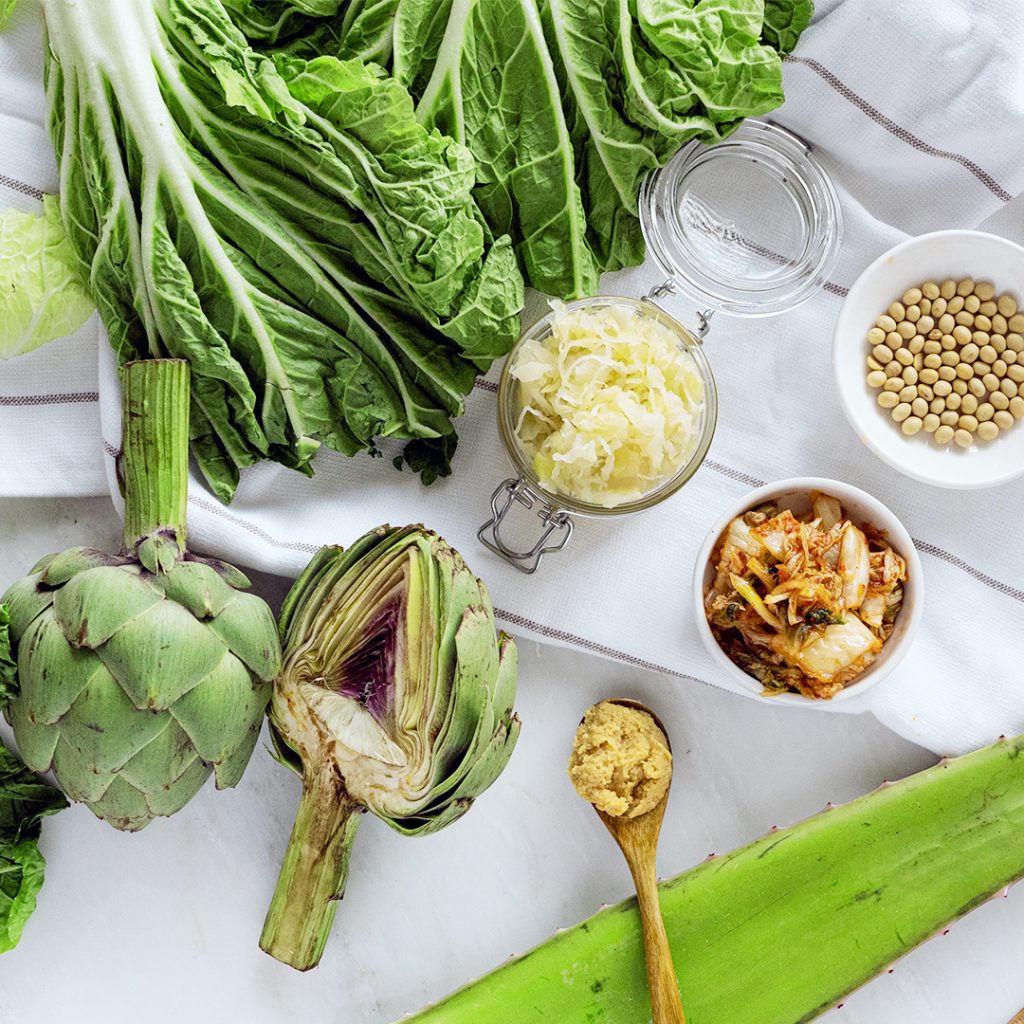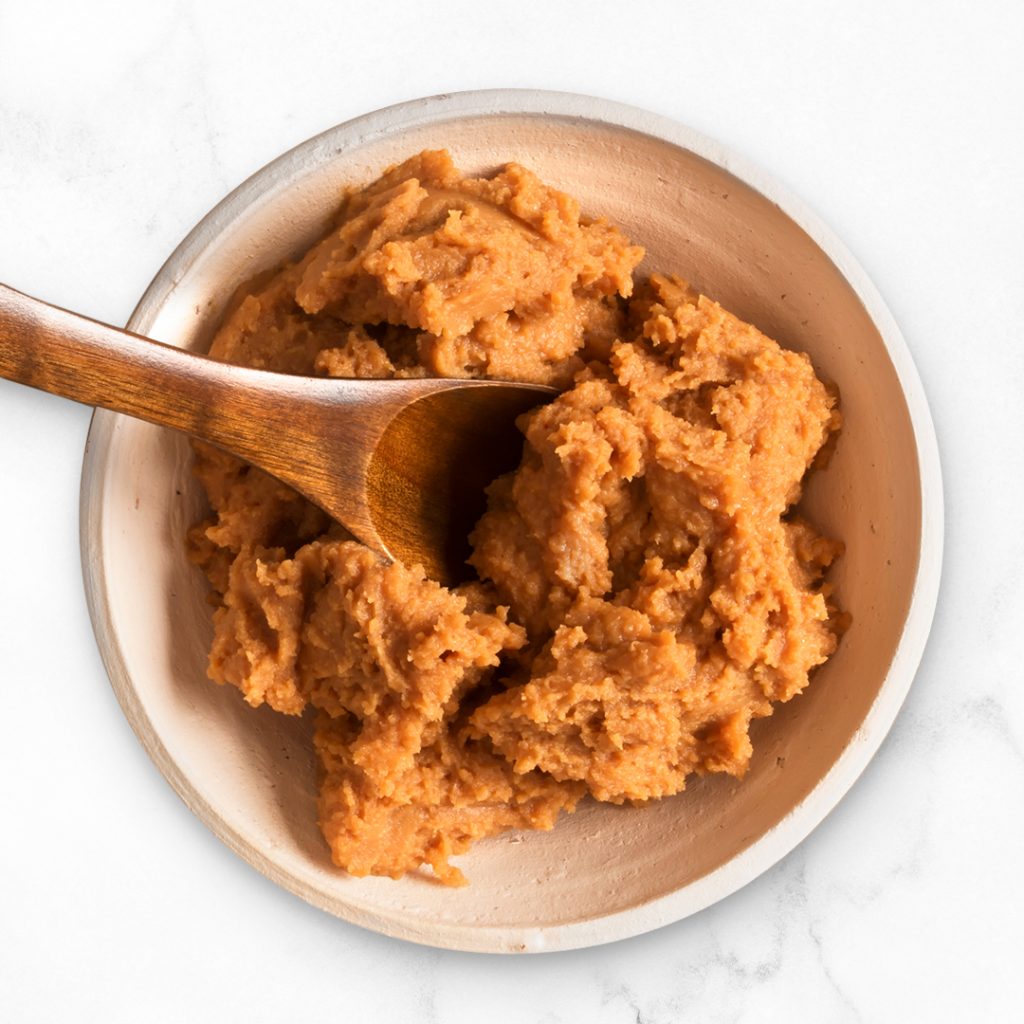
“The process required for fermented foods were present on earth when man appeared on the scene…When we study these foods, we are in fact studying the most intimate relationships between man, microbe, and foods.”
– Prof. Keith H. Steinkraus, Cornell University, 1993
Ancient cultures discovered and perfected the fermentation process to preserve their food. Fermentation encourages the growth of beneficial bacteria and simultaneously prevents the growth of pathogenic bacteria.(1) Fermented foods last months, keeps food from spoiling, and do not require refrigeration. Fermented foods fell out of favour due to the introduction of refrigeration.(2)
When you visit your local grocery store, you may notice that there are quite a few options for fermented foods. It’s not uncommon to find kombucha, sauerkraut, and other fermented foods in mainstream grocery stores. With fermentation back on our radar, it’s important to understand why fermented foods are valuable and which fermented foods you should eat.
Aside from preserving food, fermentation makes food easier to digest and enhances taste. Remember the good bacteria that defeats pathogens? These bacteria and yeast (or micro-organisms or microbes) are called probiotics in fermented foods, which are vital to health because they feed your own good microbes strains and break down food to turn them into nutrients. These micro-organisms turns fibres into fats, which build up the walls of the intestines and prevents pathogens from entering our system.(3) The medical and healthcare professionals are beginning to acknowledge that health starts in the gut. If the gut is overrun by bad bacteria or pathogens, then the rest of your body suffers and your health may begin to deteriorate.(4)

Fermentation transforms food, such as cabbage, ginger, milk, and even tea, into a more enhanced version of the original. The good bacteria, our little ferment friends, survive off of the natural sugars found in these foods. They also break down food so that it is easier to digest once it reaches our gut. What this means is that fermentation makes the minerals, vitamins, and amino acids found in these foods more bio-available so that the body can use them quicker and more effectively. Think about it this way: would you rather eat a regular carrot or would you rather eat a naturally enhanced carrot with more activated and accessible nutrients than it would have on its own?
Here are some of the best options of fermented foods to add to your diet:
- Kombucha and kefir are very popular options. Kombucha is a black tea fermented with a scoby (bacteria) and comes in a variety of lip smacking, delicious flavours. It is a great option for those looking for a healthy, gut happy alternative to pop or sugary drinks.
- Kefir is traditionally fermented milk using traditional kefir grains. More recently, kefir is also developed using water or nut milks. Miso and tempeh are other excellent options for fermented foods.
- Miso is fermented soy paste, well known in miso soup, and tempeh is fermented soy, a great meat alternative. Both miso and tempeh are quite popular in Japanese cuisine, are high in protein, and are easily added to a variety of meals.(5)
Fitting fermented foods into your diet can be a challenge. This is why Living Alchemy has created a completely unique line of fermented organic whole foods to optimize your gut health and get the best nutrients possible. We have a wide range of products to meet your health needs, from our fermented Symbiotics (probiotics, prebiotics, enzymes and nutrients) to fermented herbal solutions for energy, hormones, immune support, aging, joint health, and overall wellbeing.
As firm believers in the power of fermentation, Living Alchemy is committed to creating the best quality, fermented organic whole food supplements. Using our approximately one month-long, traditional, small batch fermentation of USDA certified organic whole foods and herbs, we turn superfoods into super superfoods. We use 35 strains of therapeutic micro-organisms and use a controlled freeze-drying process to capture the complete profile of activated nutrients. All our products are completely free from excipients, binders, additives, and fillers.
References:
1. Terefe, Netsenat Shiferaw. “Food Fermentation”. Science Direct. 13, June 2016. https://www.sciencedirect.com/science/article/pii/B978008100596503420X Accessed 19, August 2019.
2. Terefe, Netsenat Shiferaw. “Food Fermentation”. Science Direct. Accessed 13, June 2016. https://www.sciencedirect.com/science/article/pii/B978008100596503420X Accessed 19, August 2019.
3. Gunnars, Kris. “Probiotics 101: A Simple Beginners Guide.” Healthline. 13, November 2018. https://www.healthline.com/nutrition/probiotics-101 Accessed 19, August 2019.
4. Gunnars, Kris. “Probiotics 101: A Simple Beginners Guide.” Healthline. 13, November 2018. https://www.healthline.com/nutrition/probiotics-101 Accessed 19, August 2019.
5. Marengo, Katherine. “What Are the Best Fermented Foods?” Medical News Today. 7, May 2019. https://www.medicalnewstoday.com/articles/325114.php Accessed 23, August 2019

